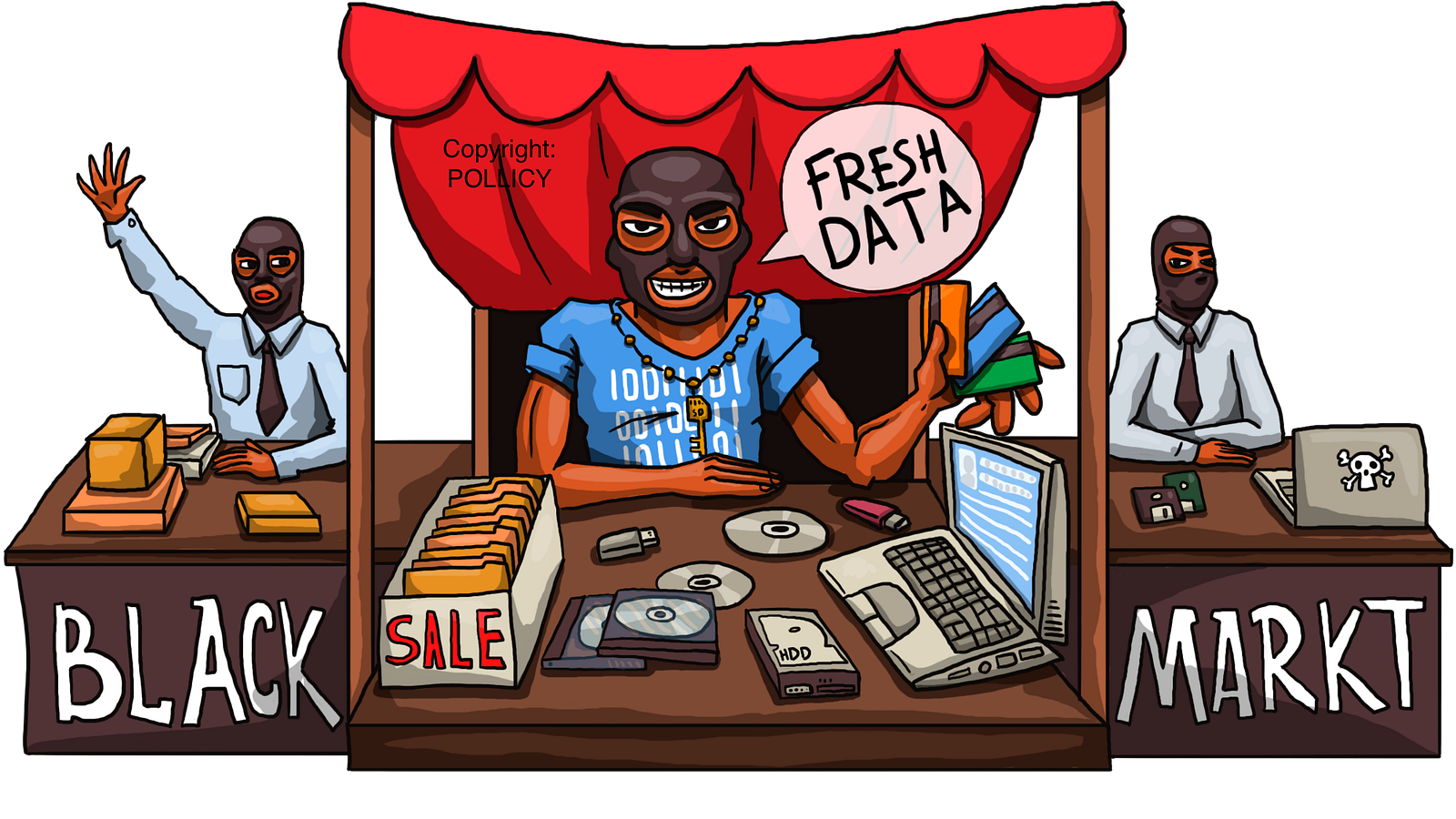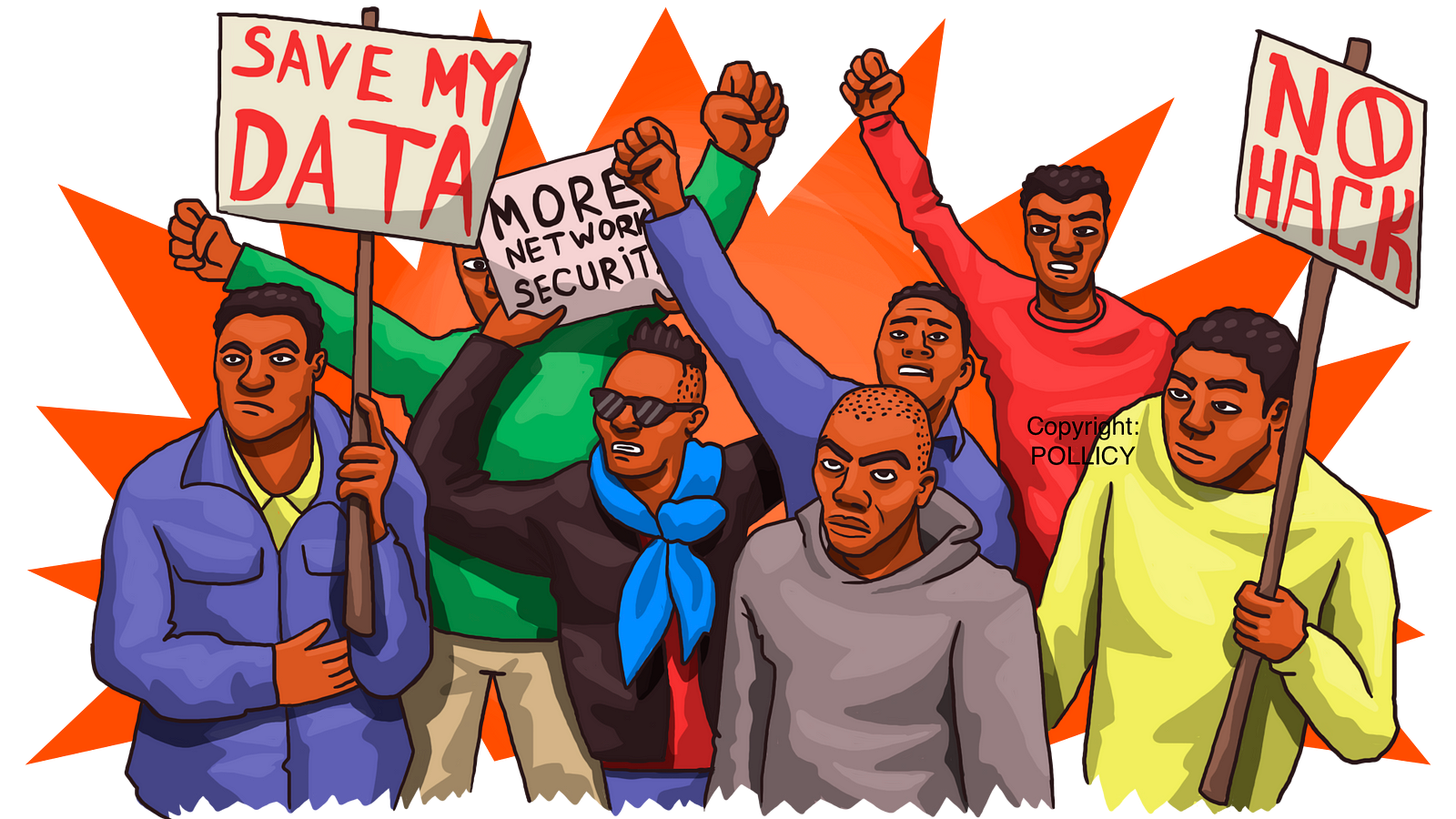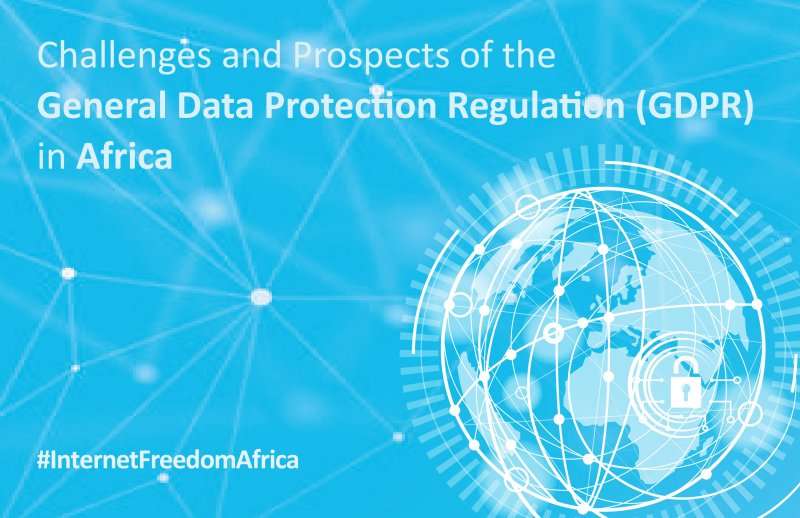Policy Brief |
Privacy is a fundamental human right guaranteed by international human rights instruments including the Universal Declaration of Human Rights in its article 12 and the International Covenant on Civil and Political Rights, in its article 17. Further, these provisions have been embedded in different jurisdictions in national constitutions and in acts of Parliament.
In Africa, regional bodies have invested efforts in ensuring that data protection and privacy are prioritised by Member States. For instance, in 2014 the African Union (AU) adopted the Convention on Cybersecurity and Personal Data Protection. In 2010, the Southern African Development Community (SADC) developed a model law on data protection which it adopted in 2013. Also in 2010, the Economic Community of West African States (ECOWAS) adopted the Supplementary Act A/SA.1/01/10 on Personal Data Protection Within ECOWAS. The East African Community, in 2008, developed a Framework for Cyberlaws. Notwithstanding these efforts, many countries on the continent are still grappling with enacting specific legislation to regulate the collection, control and processing of individuals’ data.
On May 25, 2018, the European Union’s General Data Protection Regulation (GDPR) came into effect. The GDPR is likely to force African countries, especially those with strong trade ties to the EU, to prioritise data privacy and to more decisively meet their duties and obligations to ensure compliance.
See this brief on the Challenges and Prospects of the General Data Protection Regulation (GDPR) in Africa, where we explore the consequences of GDPR for African states and business entities.

Privacy & Protection: Do Ugandans Care What Happens to Their Data?
By Neema Iyer |
Let’s be honest.
When was the last time you read the “Terms and Conditions” before you signed up for a new service online?
We don’t blame you. It’s easy to get lost in the legal jargon.
But do you know what happens to your personal data every time you click on “I have agreed to terms and conditions”? Did you know at the mere click to accept, you could have given a way a portion of your vital information and put your data privacy in absolute jeopardy?
Today, it’s hard to raise the issue of data privacy without putting a thought on the recent Facebook-Cambridge Analytica scandal that made many people realize the power of data. Even with as much information spewed out explaining what the scandal was about, very few took a note to learn from.
A recent allegation from the Cambridge Analytica scandal pins the Uhuru Kenyatta presidential campaign to have employed social media surveillance results to target campaign messages to different profiles of voters. This was possible because Facebook monitors your social media activity and can predict your behavior from that, hence such information is used to target messages that speak to your interests and emotions to sway major decisions such as election outcomes. This isn’t just happening on our doorsteps, allegations claim similar outcomes in the United States and the UK.
The EU revised as much on data privacy and protection in Europe and promised to give users more power over their data. While Europe seems to take quick action, down in Uganda and Africa at large, we continue to grapple with weak data privacy and protection laws, a citizenry that is not well-informed on data privacy, a delay in passing necessary bills and weak implementation processes. Unfortunately, a majority of African countries lack the necessary mechanisms for the inclusive participation of citizens and other stakeholders in the processes of formulating the very laws on internet and digital rights that directly affect them.
Do we care about Data Privacy and Protection?
In December 2017, Unwanted Witness, an activists group petitioned the Uganda Human Rights Commission (UHRC) to compel Parliament to speed up the enactment of privacy and data protection law.
They argued that without a governing law, citizens’ personal data is exposed to abuse without collection and protection safeguards. They further asked UHRC to prioritize privacy and recognize it as a fundamental right under attack in the country. However, to date, we are yet to see significant action taken to build an informed citizenry on their digital rights and to provide appropriate protections.
When talk about data arises, many are not really willing to delve further into the ethics surrounding the topic. This can and will still be attributed to the high illiteracy levels in the country and because many don’t know what data is or how valuable it might be on the long run, they will give it away easily. Funny as it may sound, a majority internet users think ‘data’ is the a term tied to the internet bundles that the ISPs provide and it’s that school of thought that has stuck with them. Whether their data gets in the hands of the wrong or the right people, it’s the least of their concerns.
Data Protection basically means to ensure the right to privacy, respect to confidentiality principles in various relations such as doctor patient, employer-employee and service providers with their clients generally.
Did you know that privacy is your human right?
The right to privacy refers to the concept that one’s personal information is protected from public scrutiny. It is essentially, your right to be left alone. Privacy is a core aspect of human dignity and values such as freedom of association and freedom of speech.
One would wonder, even with the data privacy breaches, are there really laws in place to curb and punish those that are misusing people’s data and evading on their privacy or we are simply looking while our data gets tampered with and is easily handed to the wrong hands.

Are there Laws in Place?
Yes! There is a Ugandan Data Protection and Privacy Bill that was tabled before parliament in 2015 and although the Bill needs to be revised and aligned better with human rights provisions, comments have been raised on the need to balance civil liberties, national security and data protection and privacy.
According to a paper published a couple of years ago by Dr Ronald Kakungulu Mayambala a Senior Lecturer of Human Rights and Peace Centre at Makerere University, Article 27 of the Constitution guarantees the right to privacy of person, home and other property. In particular, article 27(2) of the Constitution provides that a person shall not be subjected to interference with the privacy of that person’s home, correspondence, communication or other property.
Unfortunately there is no comprehensive law giving effect to article 27, yet a lot of data concerning individuals are collected, stored or processed regularly by various institutions in the private and public sector, including banks, hospitals, insurance companies, the Uganda Citizenship and Immigration Control Board, the Uganda Revenue Authority, Uganda Registration Services Bureau, the Electoral Commission, utility service providers and telecommunications companies under the SIM card registration exercise
The Bill seeks to protect the privacy of the individual and personal data by regulating the collection and processing of personal information. It provides for the rights of persons whose data is collected and the obligations of data collectors and data processors; and regulates the use or disclosure of personal information.
However even with these laws and bills in place, further questions continue to be raised on whether they even hold any solid ground in implementation, especially, if there has not been enough sensitization of the bills and data literacy.

What do some people think about data privacy in Uganda?
A chat with a few random Ugandans around town shows you just how long of a way we have to go with the data privacy and protection talk.
“I honestly have nothing to hide with my data and anyone who wants to access it can go ahead and access it. Your data can only be private if you choose to keep it private but if you choose to put it out there and later claim for privacy, then you are playing yourself” — Lisa
“Whatever you put out there is public. I don’t really care who gets my data because once Ipost anything on social media, it’s no longer in any way private. I get a need for data privacy if it comes to my business data like emails. That is when i need some real privacy” — Hans
“Data privacy is not even a topic of debating here in Uganda because people don’t really care what happens with their data. Because we have a huge Internet penetration gap, very many people don’t even know what data is in most parts of africa.” — Emmanuel
‘Do Ugandans really Care About their #Data Privacy?’
— Pollicy (@PollicyOrg) April 29, 2018
The Stampede for SIM Card Registration: A Major Question for Africa
By Edrine Wanyama |
It is anticipated that by 2025, there will be at least 5.9 billion mobile subscribers accounting for 71% of the world’s population. As of 2017, Sub-Saharan Africa (SSA) had a mobile subscription rate of 44% which is projected to reach 52% by 2025. Further, SSA’s mobile internet penetration by 2017 stood at 21% and is anticipated to increase to 40% by 2025. However, the region has registered the largest number of cases of mandatory SIM card registration yet it suffers some of biggest challenges in personal data protection and privacy.
The benefits of SIM card registration include facilitation of citizens’ access to e-Government services, easy identification of an individual’s mobile number and number portability when switching networks. In addition, it aids combating cybercrime including terrorism by limiting covert communication and promotes good relations between consumers and service providers by simplifying identification of consumers and their use of SIM services. Accordingly, many governments argue that mandatory SIM card registration is for purposes of safeguarding digital and physical security. However, critics argue that when SIM card registration is effected without due safeguards, it poses a threat to privacy and freedom of expression.
Indeed, in 2013 Mexico repealed its policies on SIM card registration “after a policy assessment showed that it had not helped with the prevention, investigation and/or prosecution of associated crimes.” Finland has not enforced compulsory SIM card registration and nonetheless, through voluntary mobile signatures, service providers has succeeded in facilitating user’s access to relevant retail, banking and e-Government services.
Globally, over 90 countries conduct compulsory SIM card registration yet some remain without clear policy on its implementation. Amidst criticisms that mandatory registration does not necessary combat cybercrime, as criminals take the necessary precautions to avoid being detected and circumvent mandatory SIM card registration, African countries continue to proactively enforce SIM card registration. Among the prevailing challenges on the continent is the difficulty in validating identity documents in an environment with a wide range of service providers who create room for potential circumvention.
Mandatory registration has negatively affected access and usage of mobile telecommunication services due to the tedious process which entails the production of documentation such as passports and national identity cards prior to registration, which sometimes results in failure to attain a SIM card, disconnection, or deactivation of SIM cards.
Additionally, there have been repetitive calls for registration of SIM cards in countries such as Uganda and Nigeria with personal data being collected more than once. In Uganda, despite government explanation that SIM card verification is aimed at ensuring secure and safer communications, citizens have unanswered questions on the exercise. Suspicion arises due to a fresh validation of SIM card registration using national identity cards subsequent to registration which was initially done using valid documents such as students’ identity cards, driving permits and passports.
Double collection of personal data may partly imply collection of data beyond what is necessary for the purpose contrary to the internationally established data protection principles such as those set out in the Organisation for Economic Co-Operation and Development (OECD) Data Protection Principles. Further, there is no guarantee of individual privacy as most of the African countries do not have data protection laws. Moreover, most of the existing data protection laws do not meet internationally recognised standards considered sufficient to guarantee personal data protection and are therefore regarded as offering moderate or limited protection.
Meanwhile, efforts to buttress data protection in Africa have not yielded much. Out of 54 countries on the continent, only 14 have data protection laws (Angola, Benin, Burkina Faso, Mali, Gabon, Ghana, Ivory Coast, Lesotho, Madagascar, Morocco, Senegal, South Africa, Tunisia and Zimbabwe). A few others such as Uganda, Kenya, Nigeria, Tanzania and Niger have Bills. Regional efforts have also not yielded much. The Convention on Cyber Security and Personal Data Protection which was adopted by the African Union in 2014 has registered only 10 signatories (Benin, Chad, Congo, Ghana, Guinea-Bissau, Mauritania, Sierra Leone, Sao Tome & Principe, Zambia and Comoros) and one ratification by Senegal.
Ultimately, there is need to reconcile state interests with citizens’ personal data and privacy rights. Mandatory registration, especially in the absence of clear registration guidelines and the lack of data protection laws, puts personal data at risk. African governments need to learn from other jurisdictions such as Europe with regards to processing of personal data as part of SIM card registration. In enforcing SIM card registration, there should be a clear set registration timelines, clear and unambiguous registration requirements.
CIPESA Submits Comments On The Uganda Data Protection and Privacy Bill, 2015
Official Submission |
Article 27 of Uganda’s constitution provides for citizens’ right to privacy, however, there is no law to protect an individual’s data privacy despite the large amounts of citizen data collected by government departments and private entities on a regular basis. More concerning, is that this data is collected with no guarantee of its protection and privacy.
Some existing legislation, for instance the Computer Misuse Act, 2011 (section 18); Access to Information Act, 2005 (section 26); Uganda Communications Act, 2013 (section 79); Electronic Signatures Act, 2011 (section 81); and the Regulation of Interception of Communications Act, 2010 (section 2) prohibit unauthorised access and disclosure of information. However, the provisions in these laws are not elaborate and do not adequately protect personal data.
The publication of the draft Data Protection and Privacy Bill 2014 was therefore a milestone. Accordingly, the Collaboration on International ICT Policy for East and Southern Africa (CIPESA) submitted comments to that version of the bill. Various concerns were raised including vague wording which left the bill open to misinterpretation, unclear procedural processes for collection and retention, as well as the costs associated with accessing personal data.
More recently on , CIPESA welcomes the Parliament of Uganda’s call for submissions on the Draft Data Protection and Privacy Bill, 2015. It once again gives opportunity for stakeholders to provide input to ensure that the law, when enacted, measures up to internationally acceptable standards of data protection.
In our latest submission, we highlight some of the positive principles and provisions of the Bill. Furthermore, we indicate areas of concern and suggest amendments to ensure that if the bill is passed into law, there are sufficient safeguards to regulate the collection, storage and use of data towards upholding citizens’ right to privacy.
See the full submission made on the Uganda Data Protection and Privacy Bill, 2015 presented to the Committee on Information and Communication Technologies (ICT) in the Parliament of the Republic of Uganda
With the sheer amount of data – including personal data – that #Uganda citizens are sharing, it is NB to have a well crafted law to safeguard this data!
See our comments on the #Uganda #DataProtection #DataPrivacy bill 2015 -> https://t.co/Clf5jvfK5j pic.twitter.com/SQmeVFyMwn
— CIPESA (@cipesaug) February 15, 2018
Report: Women's Rights and the Internet in Uganda
By APC, CIPESA, WOUGNET |
This submission is a joint stakeholder contribution to the second cycle of the Universal Periodic Review (UPR) mechanism for Uganda. This submission focuses on women’s rights and the internet in Uganda. It explores the extent of implementation of the recommendations made in the previous cycle of the UPR and also identifies emerging concerns in Uganda regarding women’s rights online.
See the full report here





